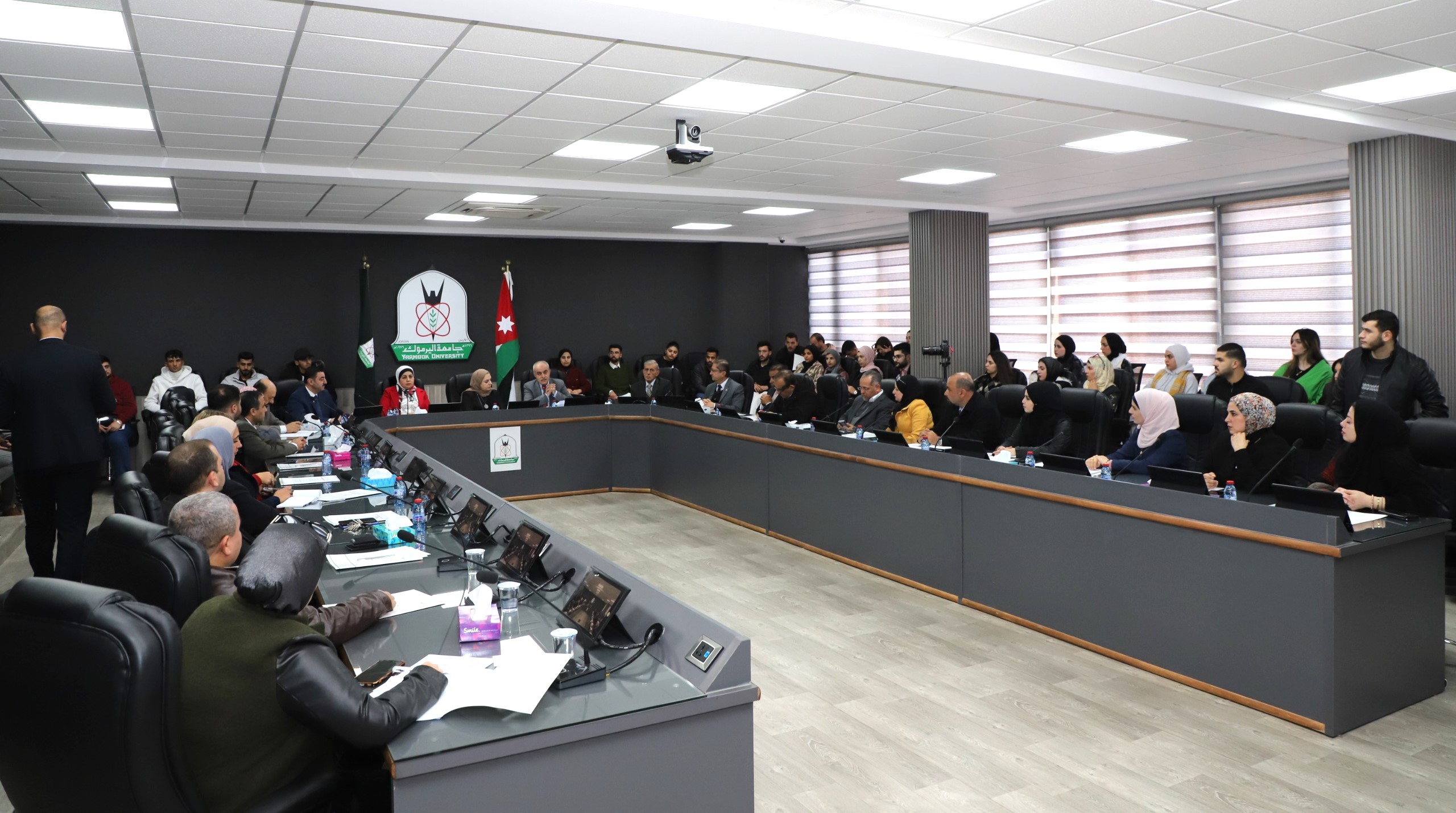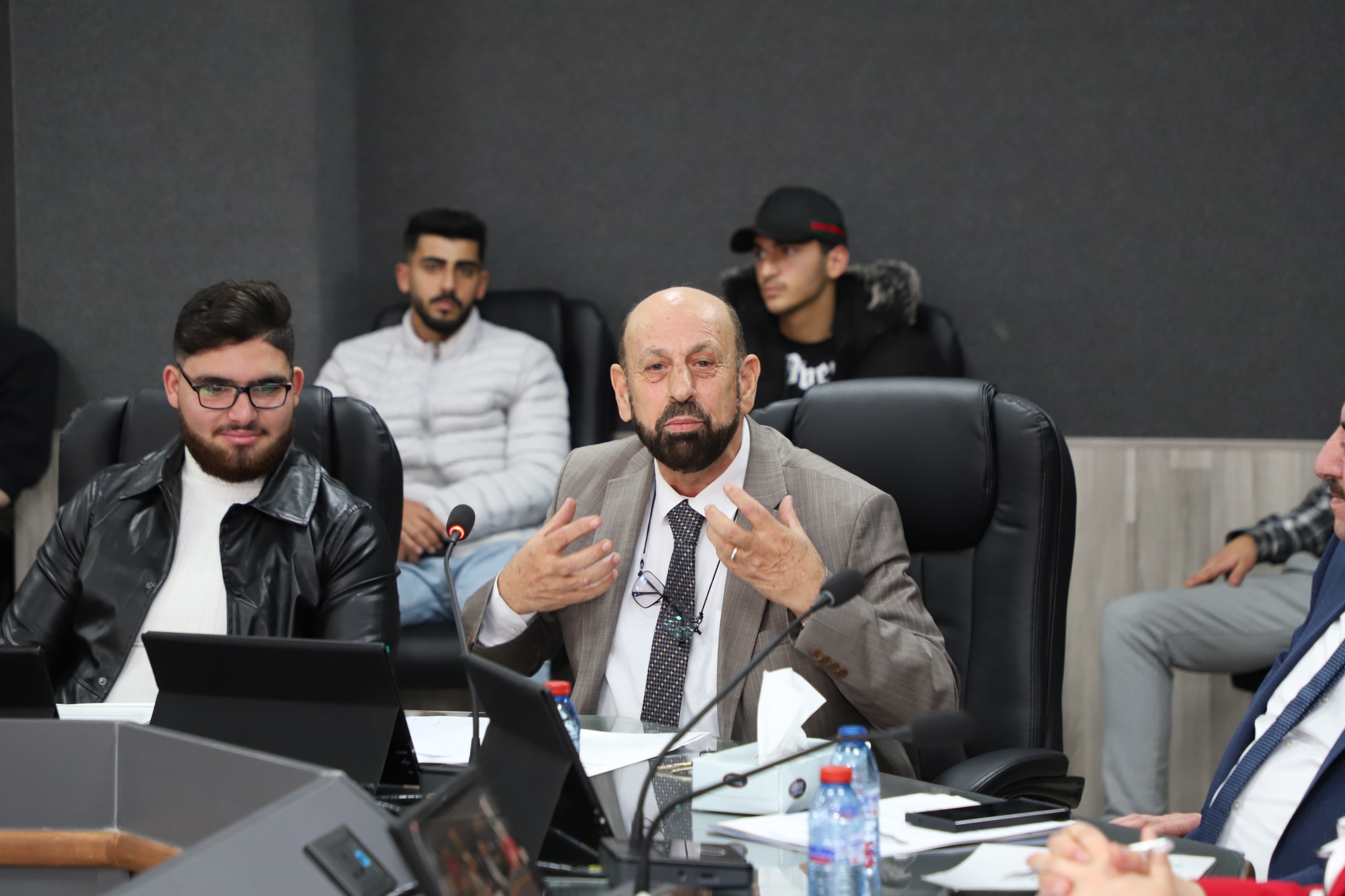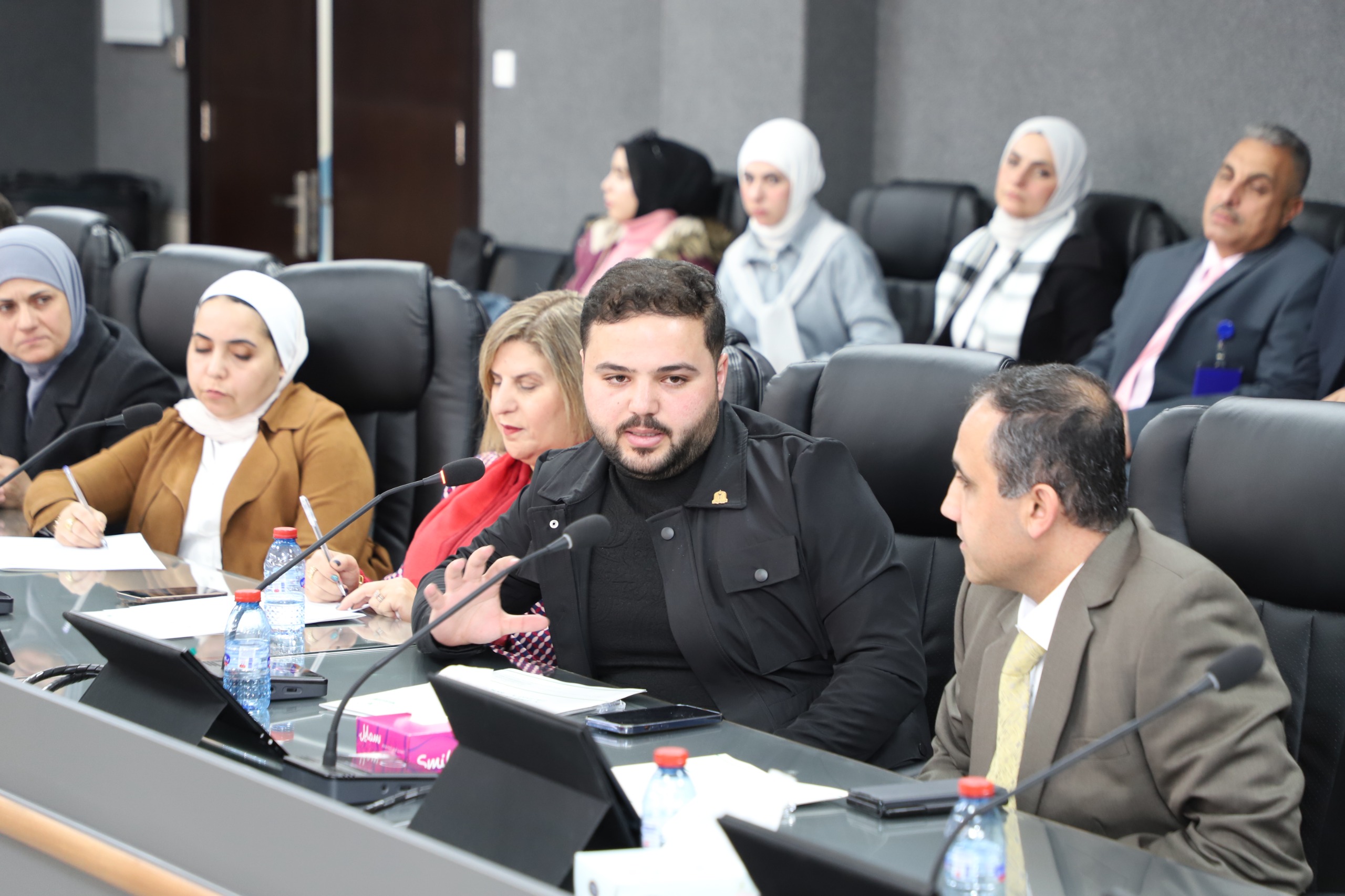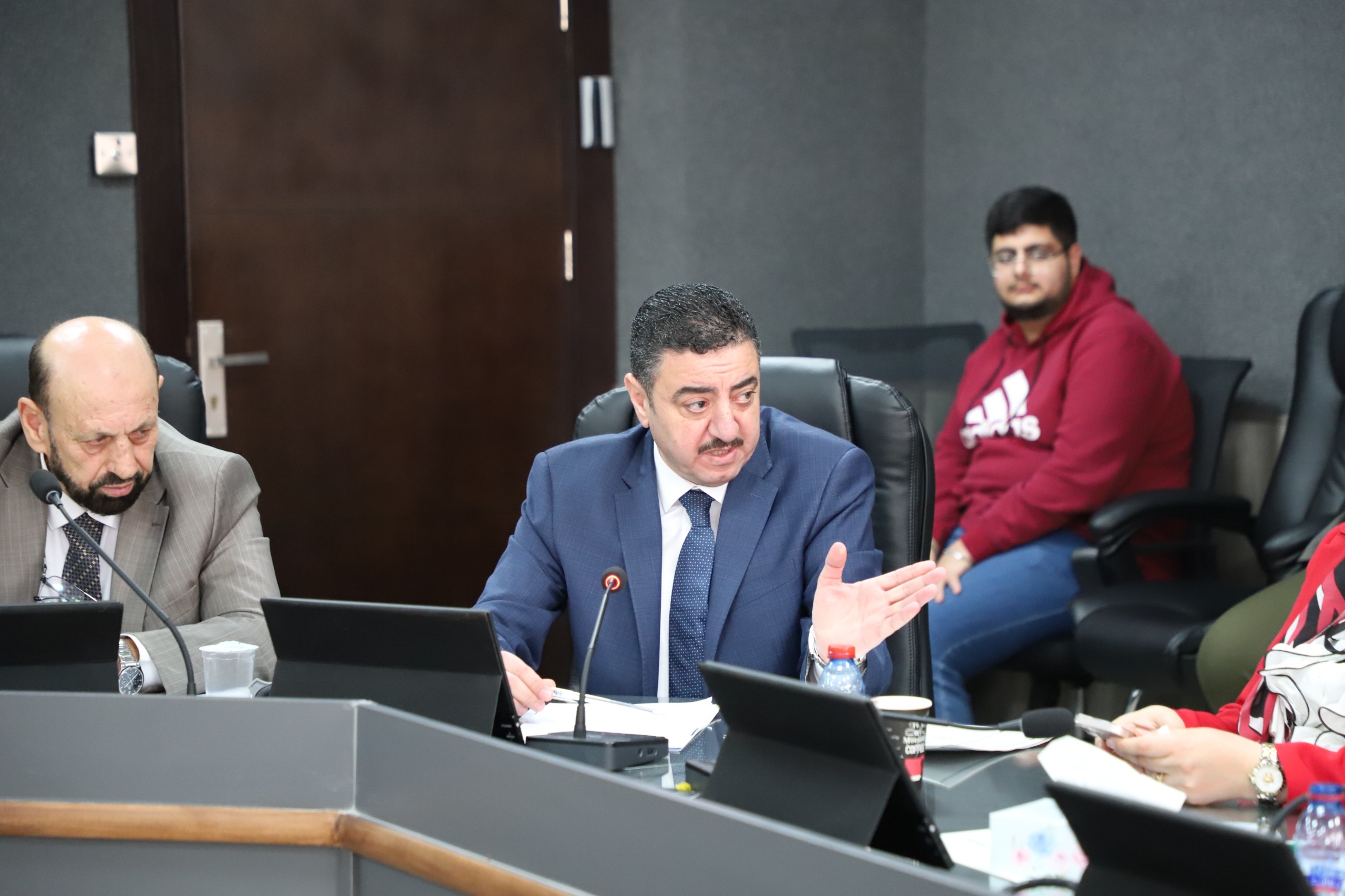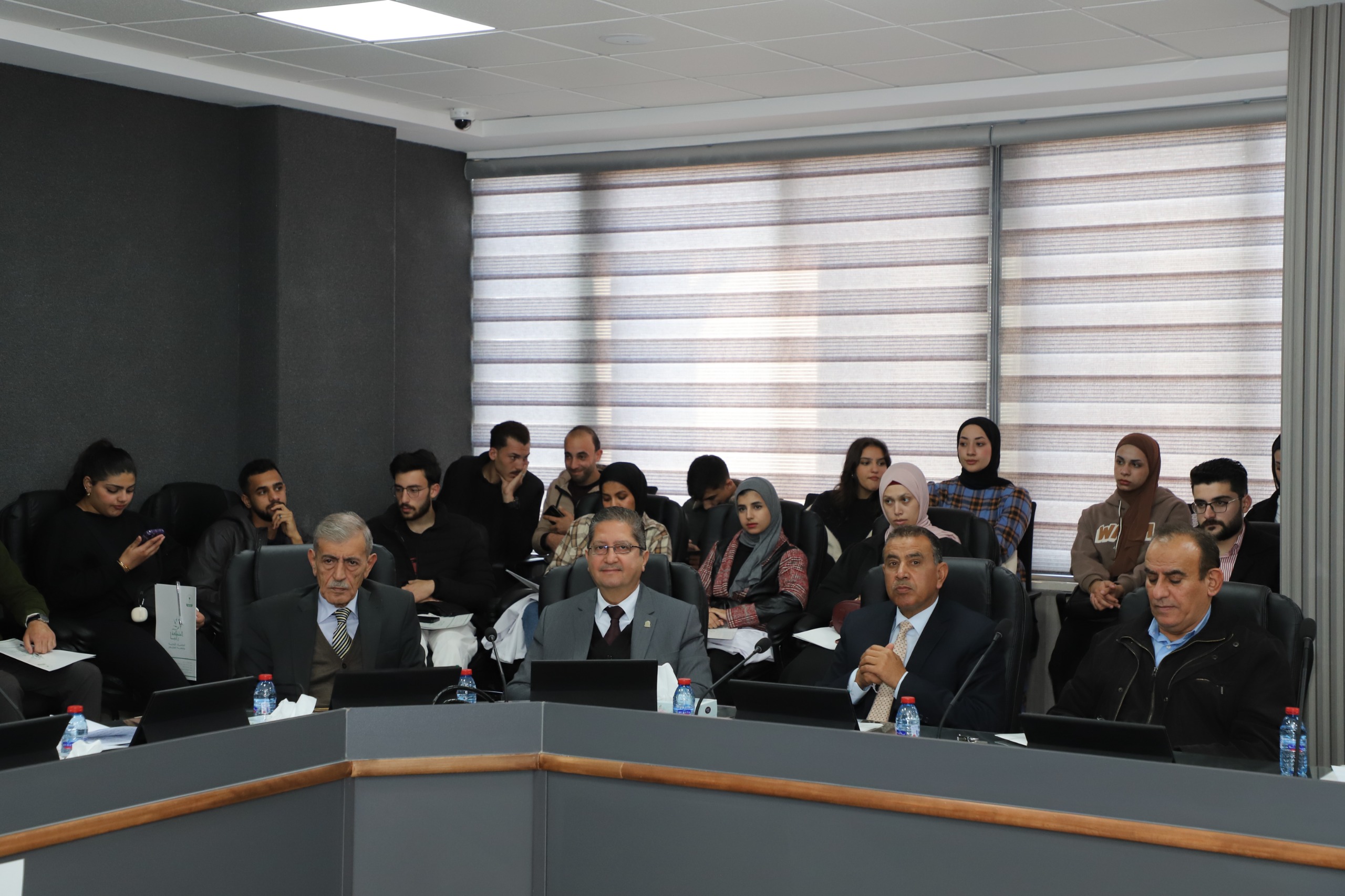"Yarmouk" Holds a Symposium on "Population, Labor Supply, and Unemployment in Jordan"
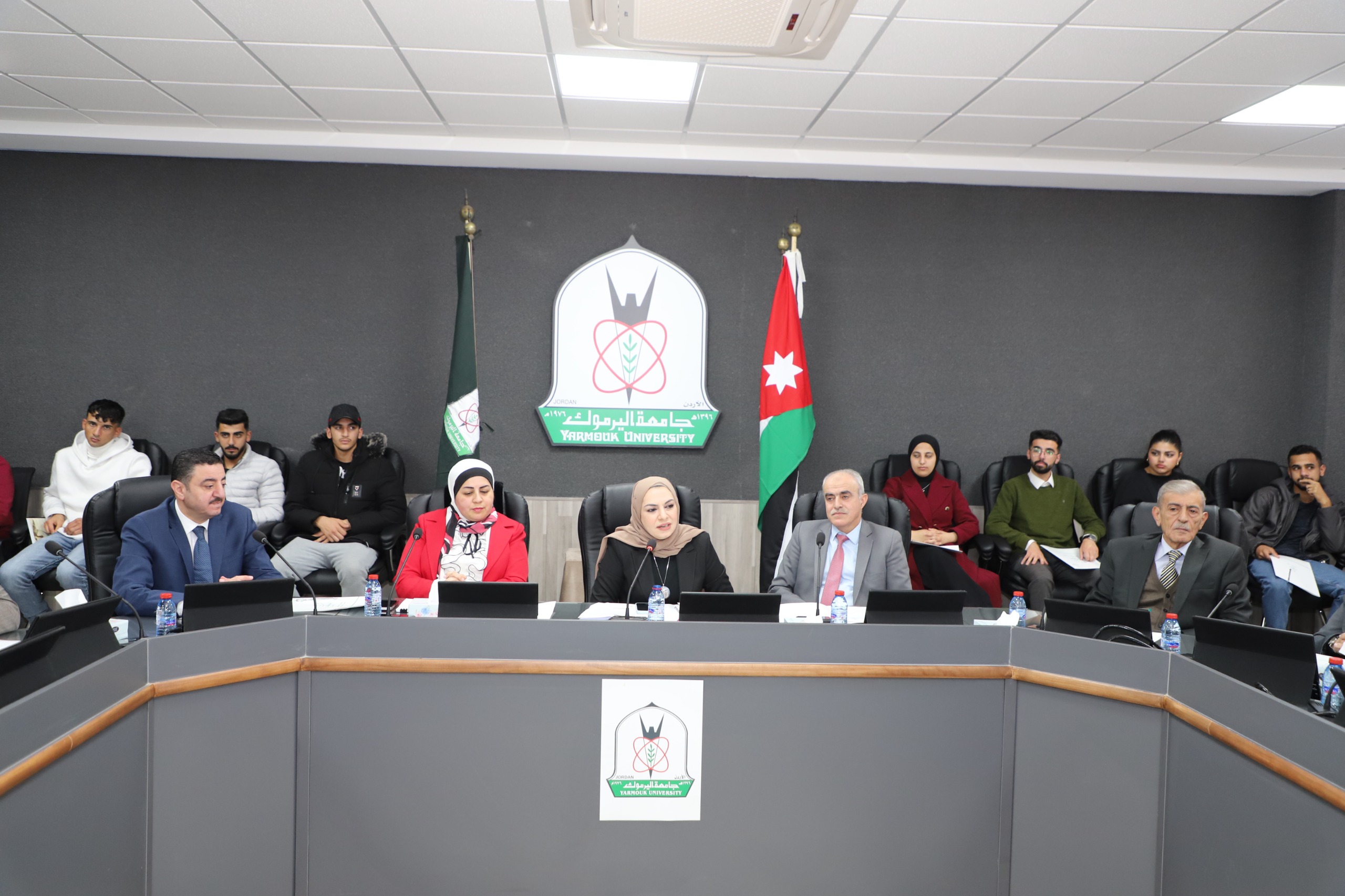
Representing the President of Yarmouk University, the Vice President for Scientific Research, Quality, and Development Affairs, Dr. Fadia Miyas, inaugurated the activities of the symposium "Population, Labor Supply, and Unemployment in Jordan." The symposium was organized by the Queen Rania Center for Jordanian Studies and Community Service and the Center for Sustainable Development at the university, with the participation of the Head of the Vocational and Technical Skills Development and Enhancement Authority, Dr. Raghadah Al-Faouri, the President of the Irbid Chamber of Industry, Mr. Hani Abu Hassan, the Executive Director of the Irbid Reconstruction and Development Corporation, Engineer Munther Al-Batayneh, and the Director of the Center, Dr. Abdalbaset Othmaneh.
In her opening remarks, Dr. Miyas stated that the rapid changes in the labor market, especially technological ones, necessitate that universities keep pace with these developments and prepare graduates by equipping them with the technical and professional skills that align with the needs of the labor market. This includes learning the skills and tools of artificial intelligence, how to interact with social media platforms, and digital competencies in their career paths, in line with the Economic Modernization Vision, which aims to develop and grow the economic sector, integrate youth, raise their efficiency, and empower them to assume their responsibilities and enhance sustainable development pathways to become partners in success.
She added that Jordan faces significant challenges, most notably the increase in population numbers coupled with a limited number of available job opportunities, in addition to the challenges facing the region that have led to multiple forced migrations. This has resulted in an increase in the population and consequently affected the labor sector in terms of the number of available job opportunities, especially since the Jordanian labor market does not absorb the increasing numbers of graduates from various disciplines. She pointed out that all these factors have put pressure on the government, institutions, and youth due to the lack of balance between the number of available job opportunities and the number of job-seeking workers.
Dr. Miyas indicated that Yarmouk University, through its strategic plan, recognized the problem and the size of the gap between available job opportunities and the number of graduates. Therefore, it worked to amend its strategic plan to align with global changes, increase networking opportunities with the industrial sector and local and international entities, and conclude numerous agreements and memoranda of understanding that serve students and provide them with training opportunities, enabling them to engage efficiently and competently in the labor market.
For his part, Dr. Othmaneh said that the organization of this event stemmed from the reality of the organic link between population dynamics and unemployment as an economic and social phenomenon. He noted that Jordan has witnessed profound demographic shifts in the past seven decades, during which the population has multiplied many times, leading to an unprecedented increase in labor supply, the size of the workforce, and job seekers. This coincided with a remarkable acceleration in the size and pace of education system outputs, a slowdown in economic growth rates, a decline in external demand for Jordanian labor, a lack of skills among the unemployed, the ineffectiveness of economic policies, especially wage policy, and a decline in the role of the public sector as a major employer of the workforce, which led to a decrease in the absorptive capacity of the labor market.
He emphasized the ability of Jordanian youth, despite the difficulties surrounding them from all sides, to achieve successes and prove themselves through their strong determination and unwavering resolve, provided there is a stimulating environment, genuine empowerment initiatives, and solid bridges to cross towards a bright future.
The symposium's activities included two working sessions. The first, titled "The Role of the Vocational and Technical Skills Development and Enhancement Authority in Upgrading the Vocational and Technical Education and Training Sector in Jordan," featured Dr. Al-Faouri discussing the establishment of the Authority in 2019 as one of the recommendations of the National Strategy for Human Resources Development. She explained that the Authority is the umbrella organization responsible for the work and improvement of the vocational and technical education and training sector and ensuring the quality of its outputs in line with local and regional market requirements. She pointed out the Authority's areas of work, which include licensing training providers, accrediting training programs according to professional standards, training and classifying trainers, professional examinations, and professional practice licenses, among other roles aimed at governing the vocational training sector in coordination with employers through partnerships with the private sector within what has become known as sectoral skills councils.
She highlighted some of the challenges facing the vocational and technical education and training sector, including the multiplicity of authorities, the lack of labor market data, the small number of professional standards, the mismatch of skills with the labor market, the failure to update curricula to align with the labor market and required skills, as well as challenges related to the implementation of the National Qualifications Framework at all levels, the application of recognition of prior learning, and the qualification of human resources in the vocational training sector. She affirmed that the Authority, in coordination and partnership with all relevant parties from the public and private sectors, is working to its full capacity to overcome these challenges and find systematic solutions to them.
The symposium also included a session titled "Vocational Rehabilitation for the Jordanian Labor Market," during which Mr. Abu Hassan pointed out that employment and rehabilitation are important topics in light of the economic challenges facing Jordan, such as the high unemployment rates, which have reached 21.4% in Jordan, with the unemployment rate among women being 34.7%.
He noted that the Irbid Chamber of Industry established the Support and Employment Unit in 2015, which aims to help job seekers find suitable job opportunities.
For his part, Mr. Al-Batayneh reviewed the drivers of vocational rehabilitation for the Jordanian labor market, which include the vocational and technical education pathway in the Ministry of Education, universities, community colleges, the Vocational Training Corporation, and the National Employment and Training Company.
Mr. Al-Batayneh called for the adoption of a number of recommendations, such as reconsidering the affiliation of community colleges to Al-Balqa Applied University, establishing an independent umbrella organization (a technical education authority), enhancing the independence of the Vocational Training Corporation, including creating special systems for human resources, financial regulations, and supplies, networking between vocational and technical education institutions, providing partnerships with major companies in various sectors, diversifying training programs, especially short-term ones, and focusing on continuous training programs.
At the end of the symposium, which was attended by a number of deans of faculties, faculty members, university officials, a group of students, and interested members of the local community, the speakers answered the attendees' questions and inquiries.
